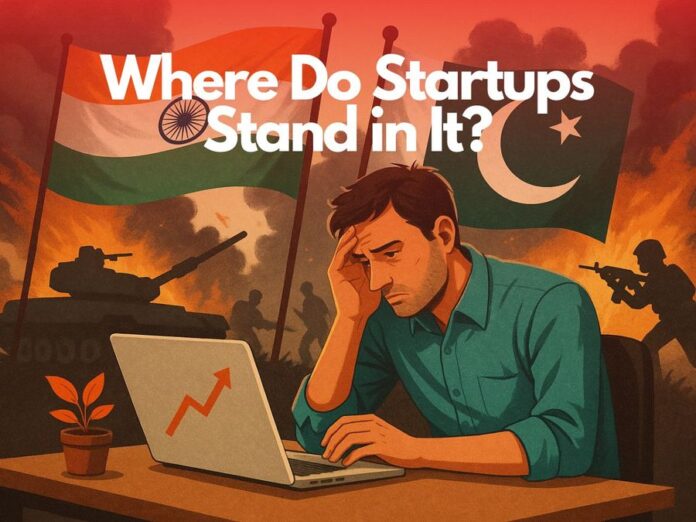Introduction to Geopolitics and Startups
As geopolitical tensions between India and Pakistan escalate in 2025, questions arise about national security, diplomacy, and the impact on various industries, particularly India’s thriving startup and IT ecosystem. With over 100,000 startups and a $245 billion IT sector, India stands at a digital crossroads. In the event of a conflict, what happens to young ventures, tech unicorns, and the global image of India as a digital powerhouse?
India’s IT and Startup Sector
India’s IT sector, led by giants like TCS, Infosys, Wipro, and HCL, generated $245 billion in revenue in FY 2024. Meanwhile, its startup ecosystem is the world’s third-largest, contributing heavily to innovation in fintech, edtech, SaaS, agritech, and healthtech. Together, these sectors employ millions and drive a major chunk of foreign capital into the country. Startups often operate with lean margins, high burn rates, and dependency on foreign investment and cloud infrastructure. Unlike tech giants with deep reserves and geo-diversified operations, early-stage startups may not be well-equipped to withstand geopolitical shocks.
Potential Disruptions to Indian Startups and Tech Industry
A conflict between India and Pakistan could disrupt Indian startups and the tech industry in several ways:
Operational Disruptions in Tech Hubs
Major tech and startup hubs like Bengaluru, Hyderabad, Pune, and NCR could face curfews, restricted logistics, and heightened security protocols. For startups that rely on 24/7 delivery cycles, client servicing, and cloud-driven development, even a 48-hour disruption can lead to delayed product rollouts, missed deadlines, and revenue loss.
Cyberwarfare: The Silent Risk
In the 21st century, wars aren’t fought only on borders—they also unfold in cyberspace. Both India and Pakistan have demonstrated cyber capabilities. Startups, especially in fintech, SaaS, and edtech, manage critical customer data, payment platforms, and proprietary tech. Potential risks include cyberattacks, data breaches, and intellectual property theft.
Funding Freeze and FDI Slowdown
Geopolitical risk directly impacts investor sentiment. Venture capital (VC) firms and foreign direct investors (FDIs) often adopt a wait-and-watch policy during crises. This could lead to a funding freeze, affecting startups that rely on external investment to scale their operations.
Talent Migration & Brain Drain
A prolonged conflict could lead to skilled talent seeking opportunities abroad, freelancers from India losing global contracts, and global clients preferring to shift projects to “safer” geographies. Startups already struggle with retaining high-quality talent. If tech professionals begin seeking stable markets like Dubai, Singapore, or the West, this could lead to a talent crunch.
Insurance, Logistics & Risk Premiums Rise
Startups that depend on physical infrastructure—like mobility, EV, agritech, or logistics—could see disrupted supply chains, higher business interruption premiums, and difficulty securing reinsurance for property, assets, or exports.
Sector-wise Fallout for Startups
Different sectors could be affected in various ways:
- Fintech: Surge in cyberattacks, investor hesitancy, risk aversion
- Healthtech: Logistic delays for med-tech hardware and imports
- SaaS/AI Startups: Risk of client attrition and overseas data center vulnerabilities
- Edtech: Cross-border collaborations and funding likely to be delayed
- EV/Mobility: Import costs rise due to crude oil spike; operations may halt
- Agritech: Supply chain breakdowns, pricing volatility
Staying Resilient
To stay resilient, startups can take several steps:
Cybersecurity Upgradation
Startups must invest in stronger firewalls, multi-factor authentication, and regular security audits. Collaborating with cybersecurity firms or incubators can offer affordable solutions.
Remote and Distributed Teams
Establishing tech and ops teams across geographies—especially in Tier 2–3 cities—can minimize disruption.
Open Client Communication
Transparent updates to global clients about continuity plans can prevent attrition or contract cancellations.
Diversified Funding Strategy
Avoid dependency on a single investor or country. Explore domestic VC funds, angel investors, or alternate models like revenue-based financing.
The Global Tech Chain Reaction
MNCs like Amazon, Google, and Accenture run large operations from India. If conflict escalates, India’s ambition to become a global semiconductor and hardware hub could also slow down.
Recovery Scenarios
The impact of a conflict on the IT and startup sector would depend on the duration and intensity of the conflict. Possible scenarios include:
- Short Conflict (2–4 weeks): Temporary funding freeze; fast rebound in 1–2 months
- Localized Skirmishes: Slight investor caution; minimal tech disruption
- Prolonged Escalation: Investment flight, talent migration, credit rating risks
- Peace via Diplomacy: Quick bounce-back; resilience boost to India’s image
Should Startups Be Worried?
Yes and No. Yes, because early-stage startups are sensitive to shocks—be it operational, financial, or psychological. No, because the Indian startup ecosystem has shown remarkable resilience before—be it during COVID, global slowdown, or geopolitical uncertainties. The key lies in preparedness. From securing operations to managing investor relationships, startup founders need to become wartime leaders, proactive, calm, and strategic.
Conclusion
India’s digital dreams are vast, but safeguarding them in turbulent times will be the true mark of a new-age entrepreneur. By understanding the potential disruptions and taking steps to stay resilient, startups can navigate the challenges posed by geopolitical tensions and continue to thrive. The Indian startup ecosystem has the potential to emerge stronger and more resilient in the face of adversity, and it is up to the entrepreneurs and leaders to ensure that this potential is realized.

